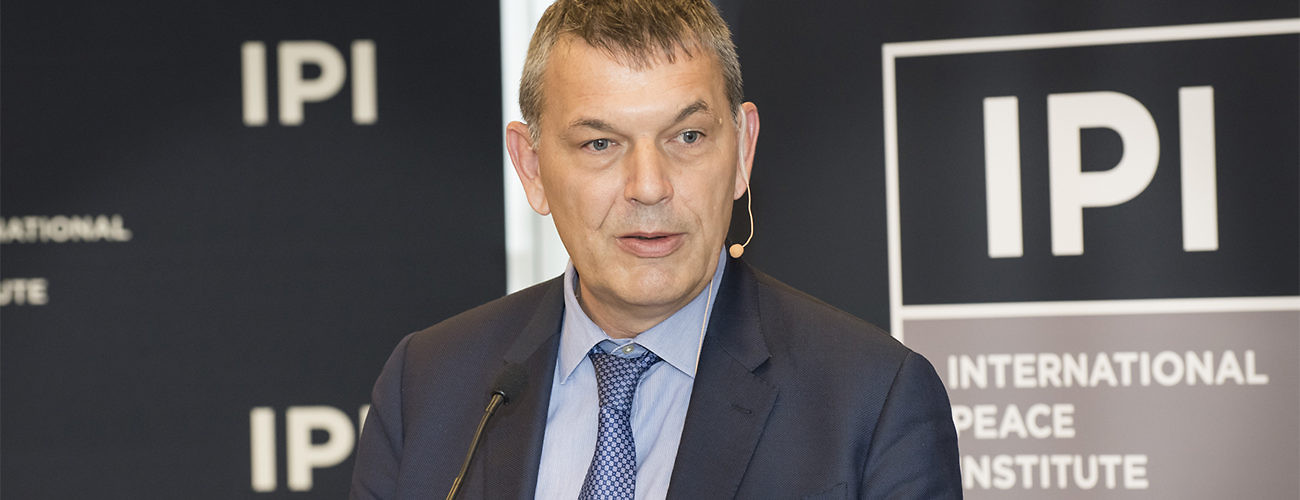Phillippe Lazzarini, the United Nations Resident and Humanitarian Coordinator for Lebanon, told a December 1st meeting on “Addressing the Humanitarian Situation in Lebanon” that though the country had proved remarkably resilient while hosting 1.5 million refugees from Syria—the highest number of refugees per capita in the world—pressure on the 5.9 million Lebanese themselves was rising.
“We keep talking about ‘donor fatigue,’ and I keep telling donors we should be much more fearful of ‘host country fatigue,’” said Mr. Lazzarini, whose full job title also includes Officer in Charge of the United Nations Special Coordinator for Lebanon.
He described a situation where Lebanese accepted the “narrative” that the refugees would one day be returning to Syria but were concerned about when that would occur, now that the conflict in Syria has been going on for seven years, with little repatriation of Syrians.
“Clearly, the tension in the country is rising,” he said. “The main driver is competition on the job market, but we also have drivers like overstretched services for the population, dealing waste management and infrastructure.”
He said that over the past year “in the narrative of people, there is much more exasperation. The narrative hasn’t changed, but the tone of how this message is being delivered by the Lebanese has grown more desperate.”
He said that though the international community had been “quite generous” in supporting humanitarian assistance, the vulnerabilities of the refugees still continued to grow, with more than 75 percent of them living under the poverty line, and 90 percent in a “food insecure environment.”
“As long as we do not have an environment of an economy which is creating jobs and wealth, it is extraordinarily difficult to reverse the tide of vulnerability,” he said. “There is no creation of jobs anymore in Lebanon, which hits the local population.”
He said this has led to three perceptions among the Lebanese that inhibit the UN’s work. The first, he said, was that the international community has a “hidden agenda” to integrate Syrian refugees into Lebanon rather than sending them back, as the Lebanese had always been assured would happen. The second is that the international community care only about the refugees and not about the increasingly vulnerable Lebanese population.
And the third is that with the war nearing an end, no one is pressing the Syrians to return to their country. “We keep reminding them that conditions in Syria are far from ideal for the people to go back,” he said.
He was asked what the perception of the UN was in the country, and he replied that while in most Middle Eastern countries the UN has a “deficit image,” Lebanon was a place in the region where the United Nations has a comparatively positive image.
The reasons for that, he said, were the stabilizing influence of the United Nations Interim Force in Lebanon (UNIFIL) in the south, the institutional support given by two other agencies—a regional commission and the United Nations Development Programme (UNDP)—and the humanitarian role played by the United Nations Relief and Works Agency for the Palestinians in the Near East (UNRWA).
“The UN has a very longstanding presence,” he said. “We are there since the UN’s inception. We’ve been present at times of crisis, war and also prosperity, so we are part of the Lebanese landscape.”
The moderator of the event was IPI Vice President Adam Lupel.
The event was held as part of IPI’s Humanitarian Affairs Series.








